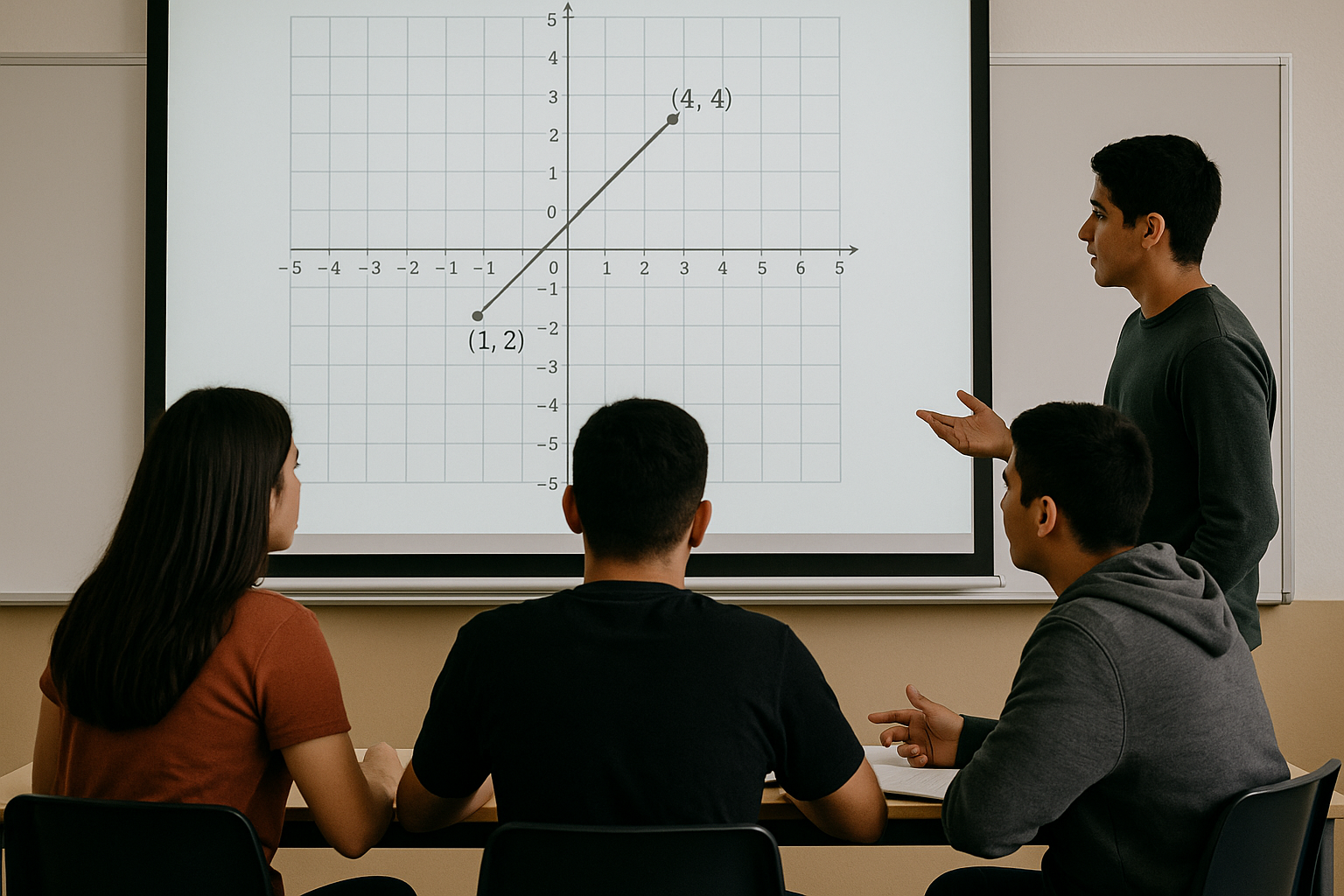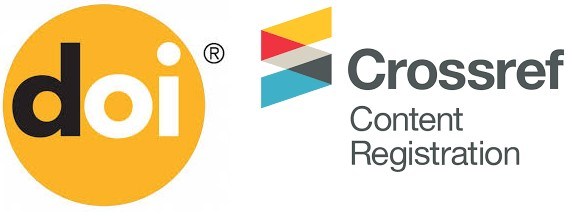Teaching the distance between two points through problem solving: an experience in the third grade of high school
DOI:
https://doi.org/10.46219/rechiem.v17i2.156Keywords:
Teaching Approach, Problem Solving, Distance between two pointsAbstract
This article reports on a teaching experience based on the five actions of the Mathematics Teaching and Learning through Problem Solving (MTLPS) approach, aimed at fostering students’ understanding of the concept of distance between two points. A didactic proposal was designed and implemented in a class of 27 third-year secondary students. The findings show that students activated various mathematical knowledge and engaged actively in the problem-solving activity. Three solution strategies were identified: two led to the expected answer, while one did not. Furthermore, it was observed that teacher support played a crucial role in connecting students’ prior knowledge with the new content. In conclusion, the implementation of the five actions of the MTLPS approach proved to be an effective means to foster students’ comprehension of the mathematical content related to the distance between two points.
Downloads
References
Akamine, C. S., y Proença, M. C. (2022). Ensino-aprendizagem de adição de frações via resolução de problemas. Tecné, Episteme y Didaxis: TED, (52), 303-322. https://doi.org/10.17227/ted.num52-15590.
Brasil (2018). Base Nacional Comum Curricular. Educação Infantil, Ensino Fundamental e Ensino Médio. Brasília: MEC. http://basenacionalcomum.mec.gov.br/
Echeverria, M, D. P. P. (1998). A solução de problemas em matemática. Em J. I. Pozo (Ed.). A solução de problemas: aprender a resolver, resolver para aprender (pp. 43-65). ArtMed.
English, L. D. (2020). Teaching and learning through mathematical problem posing: commentary. International Journal of Educational Research, 102, 1-5. https://doi.org/10.1016/j.ijer.2019.06.014
Fi, C. D., y Degner, K. M. (2012). Teaching through problem solving. Mathematics Teacher, 105(6), 455-459. https://doi.org/10.5951/mathteacher.105.6.0455
Koichu, B. (2020). Problem posing in the context of teaching for advanced problem solving. International Journal of Educational Research, 102, 1-13. https://doi.org/10.1016/j.ijer.2019.05.001
Kunene, N., y Sepeng, P. (2017). Rural Learners’ views and perceptions about their experiences in word problem solving. Journal of Social Sciences, 50(1-3), 133-140. https://doi.org/10.1080/09718923.2017.1311728
Lester, F. K., y Cai, J. (2016). Can mathematical problem solving be taught? Preliminary answers from 30 years of research. En P. Felmer, E. Pehkonen, y J. Kilpatrick (Eds.). Posing and solving mathematical problems (pp. 117-135). Springer: Cham.
Liljedahl, P., y Cai, J. (2021). Empirical research on problem solving and problem posing: a look at the state of the art. ZDM - The International Journal on Mathematics Education, 53(4), 723-735. : https://link.springer.com/article/10.1007/s11858-021-01291-w
Mendes, L. O. R., Proença, M. C., y Moreira, M. A. (2022). Ensino-Aprendizagem de Matemática via Resolução de Problemas: reflexões sob o enfoque da aprendizagem significativa crítica. Ensino da Matemática em Debate, 9(2), 17–36. https://doi.org/10.23925/2358-4122.2022v9i255547
Pereira, F. F., y Proença, M. C. de (2023). Ensino-aprendizagem de equações de 2º grau via resolução de problemas: uma experiência a partir de uma trajetória hipotética de aprendizagem. Revista Paranaense de Educação Matemática, 12(28), 427-446. https://doi.org/10.33871/22385800.2023.12.28.427-446
Proença, M. C. de (2022). Habilidades Matemáticas na Resolução de Problemas: análise da compreensão de futuros professores. Bolema – Boletim de Educação Matemática, 36(74), 1135–1157. https://doi.org/10.1590/1980-4415v36n74a09
Proença, M. C. de; Maia-Afonso, É. J., Mendes, L. O. R., y Travassos, W. B. (2022). Dificuldades de Alunos na Resolução de Problemas: análise a partir de propostas de ensino em dissertações. Bolema – Boletim de Educação Matemática, 36(72), 262-285. https://doi.org/10.1590/1980-4415v36n72a12
Proença, M. C. (2021). Resolução de Problemas: uma proposta de organização do ensino para a aprendizagem de conceitos matemáticos. Revista de Educação Matemática, 18(1), 1-14. https://doi.org/10.37001/remat25269062v17id359
Proença, M. C. de, Maia-Afonso, É. J., Travassos, W. B., y Castilho, G. R. (2020). Resolução de Problemas de Matemática: análise das dificuldades de alunos do 9º ano do ensino fundamental. Amazônia - Revista de Educação em Ciências e Matemáticas, 16(36), 224-243. http://dx.doi.org/10.18542/amazrecm.v16i36.8639
Proença, M. C. (2018). Resolução de Problemas: encaminhamentos para o ensino e a aprendizagem de Matemática em sala de aula. Maringá: Eduem. https://livraria.eduem.uem.br/loja/resolucao-de-problemas-encaminhamentos-para-o-ensino-e-a-aprendizagem-de-matematica-em-sala-de-aula/
Polya, G. (1994). A arte de resolver problemas: um novo enfoque do método matemático. Interciência.
Rozario, T. A., y Proença, M. C. (2023). Ensino de área de triângulo via resolução de problemas: uma experiência baseada nas cinco ações do EAMvRP. Educação Matemática em Revista, 28(80), 01-15. https://doi.org/10.37001/emr.v28i80.3311
Rozario, T. A., y Proença, M. C. (2022). Resolução de problemas e área de triângulo: análise dos conhecimentos de alunos do 6º ano o ensino fundamental. Revista Paranaense de Educação Matemática, 11(26), 492–517. https://doi.org/10.33871/22385800.2022.11.26.492-517
Santos, R. R. dos, Campelo, C. da S. A., y Proença, M. C. de (2023). O ensino de logaritmos via resolução de problemas no ensino médio. ACTIO – Docência em Ciências, 8(3), 1-22. http://dx.doi.org/10.3895/actio.v8n3.17577
Schroeder, T. L., y Lester, F. K. (1989). Developing understanding in Mathematics via problem solving. En P. R. Trafton, y A. P. Shulte (Eds.). New directions for elementary school mathematics (pp. 31-42), Reston: NCTM.
Schoenfeld, A. H. (2020). Mathematical practices, in theory and practice. ZDM: The International Journal on Mathematics Education, 52(4), 1163–1175. https://doi.org/10.1007/s11858-020-01162-w
Sousa, A. C., y Proença, M. C. (2019). Uma proposta de ensino de equação de 1º grau com uma incógnita via resolução de problemas. Revista Prática Docente, 4(2), 431-451. https://periodicos.cfs.ifmt.edu.br/periodicos/index.php/rpd/article/view/512
Triana, I. M. (2005). La formación de la habilidad para resolver problemas de matemáticas: una experiencia investigativa sustentada en el enfoque histórico cultural. Tecné, Episteme y Didaxis - TED, (18), 17-33. https://doi.org/10.17227/ted.num18-457

Published
How to Cite
Issue
Section
License
Copyright (c) 2025 Ana Beatriz de Oliveira, Amanda Cristina de Sousa, Marcelo Carlos de Proença

This work is licensed under a Creative Commons Attribution 4.0 International License.










